#gatsby tag
Explore tagged Tumblr posts
Text

Gatsby with the flower honse ego
180 notes
·
View notes
Text
*me at the club* so does anyone wanna discuss queer undertones in classic literature?
#frankenstein#dracula#the great gatsby#moby dick#hamlet#jane eyre#twelth night#as you like it#the picture of dorian gray#mrs dalloway#the merchant of venice#calling some of these subtext feels derivative but tagging anyway#sherlock holmes#anna karenina#the strange case of dr jekyll and mr hyde#wuthering heights#little women#literature#classic literature#queer subtext#queer lit#lgbtq+
7K notes
·
View notes
Text
I swear this was really funny in my head

Og:

#the great gatsby#tag#jay gatsby#nick carraway#daisy buchanan#natsby#nick carraway x jay gatsby#nick x gatsby#fanart#digital art#shit post
936 notes
·
View notes
Text
I've seen some folks saying that the reference to The Great Gatsby in TBOB was just a joke Alex didn't put deeper meaning into—which might be true, IDK the man's motives for choosing Gatsby specifically—and that there's no way the book has any deeper relevance to Bill's character beyond the eye doctor thing—which is totally wrong. Whether or not Alex intended parallels, there ARE parallels. So, for those of you who didn't read or didn't pay attention to The Great Gatsby:
the book's about a guy who started out as an unimportant loser with starry-eyed dreams, who very quickly gained a lot of power/gold and now presents himself as this dapper fancy well-dressed super important guy.
He constantly throws huge parties, he's got a reputation for being THE party host. But it's a sham, he's pouring all these resources into this party to make himself look so cool but he's living at the very edge of his means.
He lies about his history, lies about how he got his money (spoilers: he's a criminal), lies even in how he presents his personality—he's a con artist, he's always wearing a mask.
The reason he's doing all this—putting on the mask, making himself look so great—is because he's trying to reach across this very thin boundary to a better life he can see, JUST out of reach, so close but something he's never quite clever enough and rich enough and persuasive enough to reach. Every night at his parties he stares at his goal, he can LITERALLY SEE it, he just can't reach it himself.
The best he can do is briefly charm and dazzle someone on the other side of this social boundary, but he can never quite persuade that person to help him cross over; in fact no one on the other side of the boundary thinks he has a right to cross it.
He finds somebody—the guy narrating the book about him—who's very lonely, socially awkward, and disillusioned, whom he can easily awe with his stories and persuade to help him reach his goal, come on please, it'll be harmless! (It is not harmless.)
He loses control over the act he's putting on and over the people who only follow him around as long as he's still got the resources to keep them entertained and loyal.
It ends with him getting murdered by a guy he has LITERALLY never met before—by which point everyone has realized that he's a nobody making it all up as he goes along who was just desperately chasing the illusion of a good life and the admiration of everyone around him.
The narrator ends up disillusioned with him and the whole culture around him of grasping and clawing for a glitzy glamorous life at the expense of the regular people who are manipulated, trampled, and discarded in the process.
Now tell me that Gatsby doesn't have any parallels to Bill's character. And this is just based off reading the book a decade ago—there's probably tons of little details I don't even remember. The book may well have been chosen as a coincidence, it did recently hit the public domain. But if so, it's a VERY GOOD coincidence.
#the book of bill#the book of bill spoilers#gravity falls#(and yknow what this post is targeted to the GF fandom but since I DID just write a whole post about the book I might as well tag—)#the great gatsby
2K notes
·
View notes
Text








eva noblezada as daisy buchanan in the great gatsby on broadway
#self-indulgent gifset here#god the costumes in this musical are absolutely gorgeous#the great gatsby#the great gatsby musical#daisy buchanan#eva noblezada#musicaledit#broadwayedit#broadwaydaily#thegreatgatsbyedit#evanoblezadaedit#<- yeah no idea how to tag this#loresgifs
632 notes
·
View notes
Text


hey man can i come over and listen to you tell me the truth about your life story after you’ve had your heart broken by the love of your life and the only person left to pick up the pieces is me? no worries if not
#the great gatsby#jay gatsby#nick carraway#1920s#20s#classic literature#art#fanart#my art#rip gatsby you would’ve loved pride month#natsby#forgot to tag the ship. the ship that i specifically drew
146 notes
·
View notes
Text
it is unfair that there is no gnome adaptation of other classic literature. gnomenstein. gnomian. the picture of dorian gnome. the great gnome. perhaps not gnome dick or white gnomes, however. rather unfortunate names.
#charmai.txt#i will tag so people know what i am saying...#frankenstein#demian 1919#tpodg#the great gatsby#Moby dick#white nights
376 notes
·
View notes
Text
i’m cringe????

(wip)
#the great gatsby#nick carraway#jay gatsby#AAAAAAAAAAAAAAAAAAAAH#h e lp#i could put this under the natsby tag and i will#natsby
189 notes
·
View notes
Text
The progression of Jeremy Jordan characters flirting is so funny
Jack Kelly: a smart girl, huh? Beautiful, smart, independent....
Clyde Barrow: (sending a dress) to Bonnie: I can't wait to rip this off of you 😏
Jay Gatsby: *panics, starts throwing shirts everywhere*
#tag yourself I'm gatsby#jeremy jordan#jack kelly#jay gatsby#clyde barrow#bonnie and clyde#the great gatsby#gatsby broadway#newsies broadway#newsies musical#broadway musicals
443 notes
·
View notes
Text
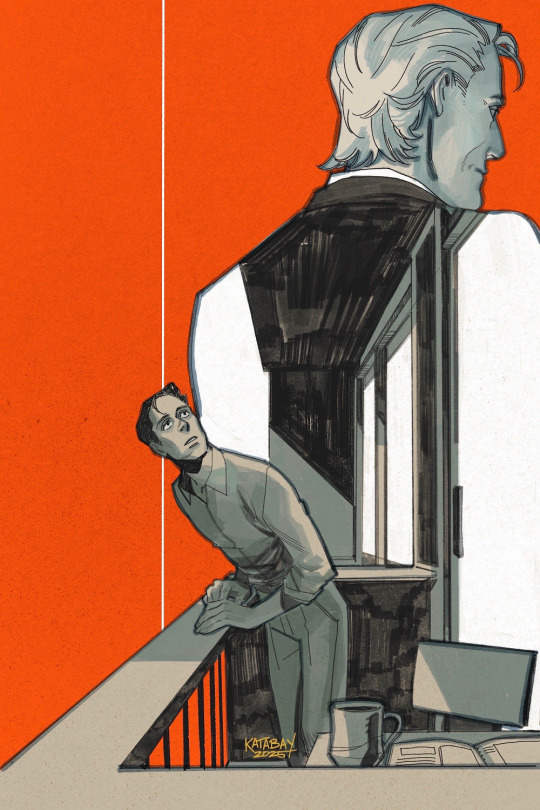
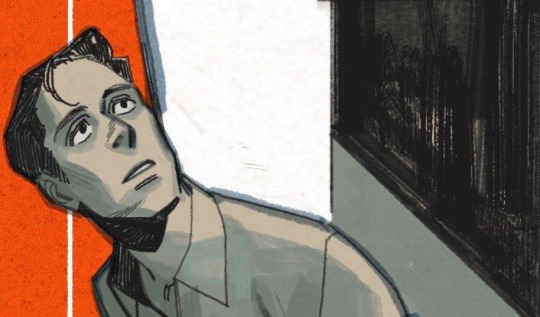
VELOCITY
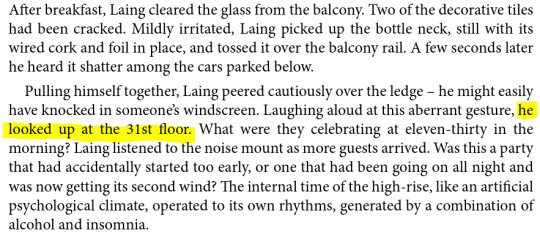
goddddd every time I read this book it makes me feel like I'm whirling around in a blender. anyway, this is robert laing and anthony royal
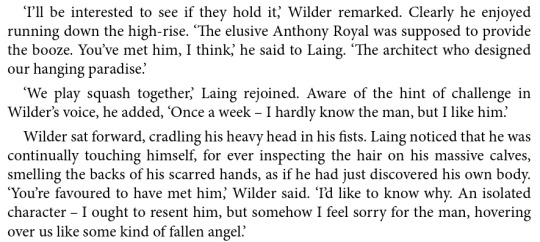

High-Rise, J.G. Ballard
#the dream is to also illustrate some of the scenes involving the pool. like a series of progressions as everything avalanches down#& some of the really gross visceral stuff for sure. tragically i have yet to find a digital brush set that can accurately convey. crunchy#gnarliness. like it would be so much faster to just use paint brushes and inks. ALAS. the search continues#j.g. ballard tag#unrelated to that. wilder and tom buchanan from gatsby look The Same in my mind. doubles casting strikes again!#i wonder what'll happen when i start designing alice...hm.....
94 notes
·
View notes
Text

hey I remembered these guys again
23 notes
·
View notes
Text
After all these years…
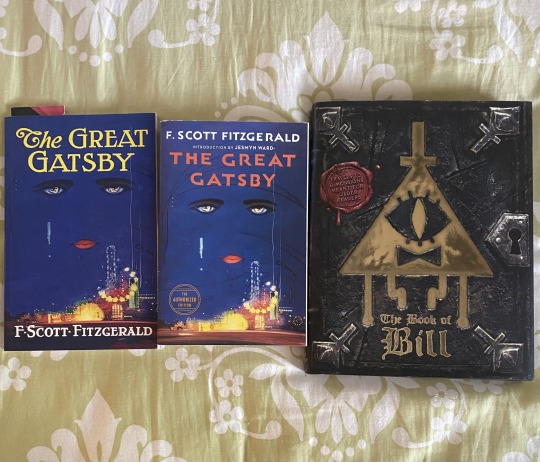
Finally, I have them all.
Is it odd to have three copies of The Great Gatsby?
Perhaps. But in all seriousness, it's helpful to have a physical copy or two while looking for codes 🧐
#gravity falls#bill cipher#the book of bill#book of bill#the great gatsby#i feel awful for actual Great Gatsby fans who have to deal with their tag flooded with GF stuff#sorry y’all!
281 notes
·
View notes
Text
sometimes a narrator is unreliable because they don't know the truth. sometimes the narrator is unreliable because they're a big fat liar and a hypocrite and I didn't say a name because one already came to mind, didn't it...
294 notes
·
View notes
Text
Some of you never got deranged about something you read in English class and it shows
#the iliad#the odyssey#the great gatsby#to kill a mockingbird#the taming of the shrew#romeo and juliet#I'm just tagging all the ones I remember getting weird about#Also thank you harper lee for radicalizing me at the ripe old age of 12#death of a salesman#that radicalized me at age 17 and did it way harder
285 notes
·
View notes
Text
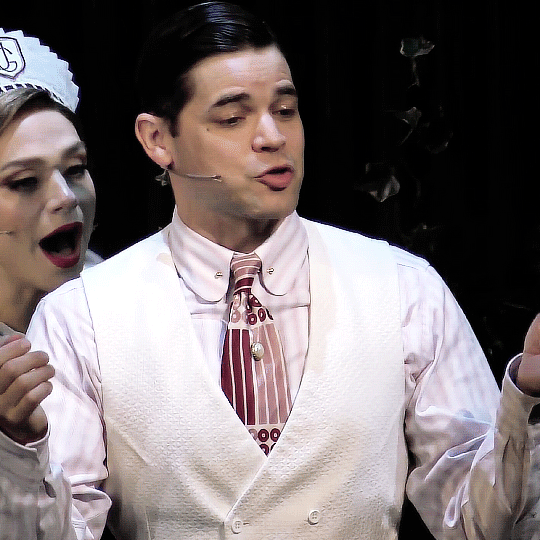
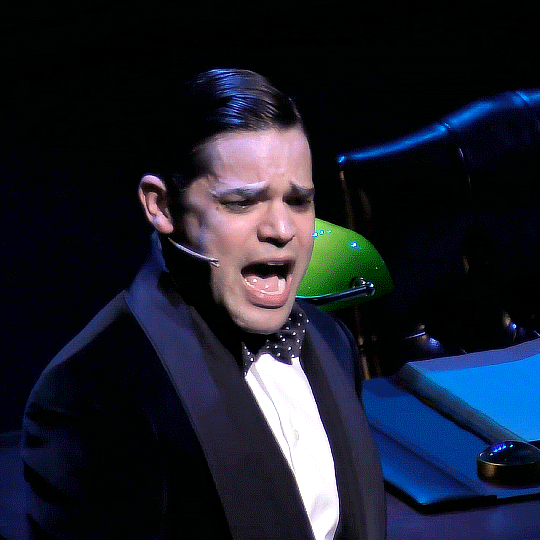
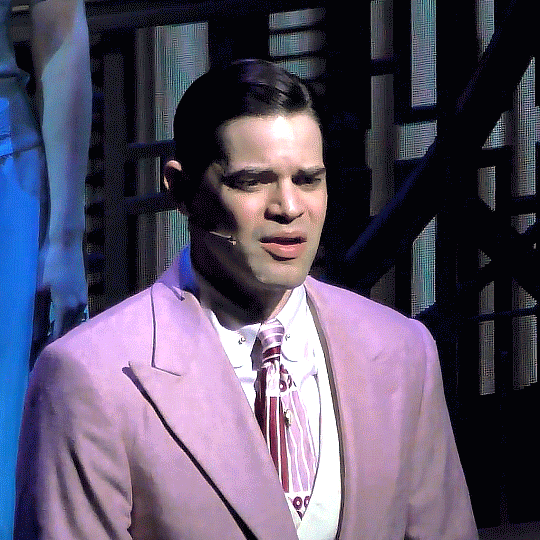
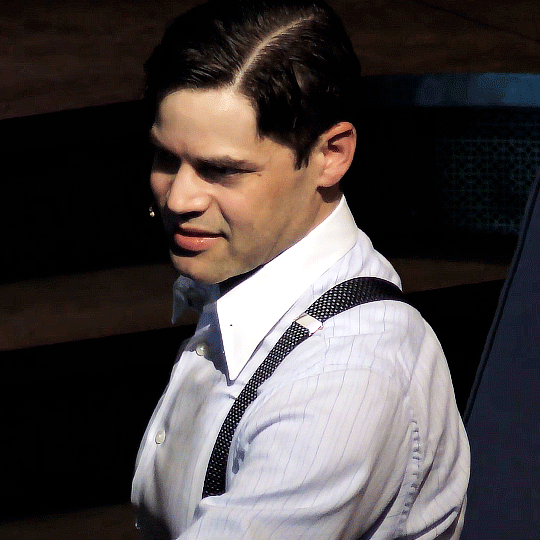
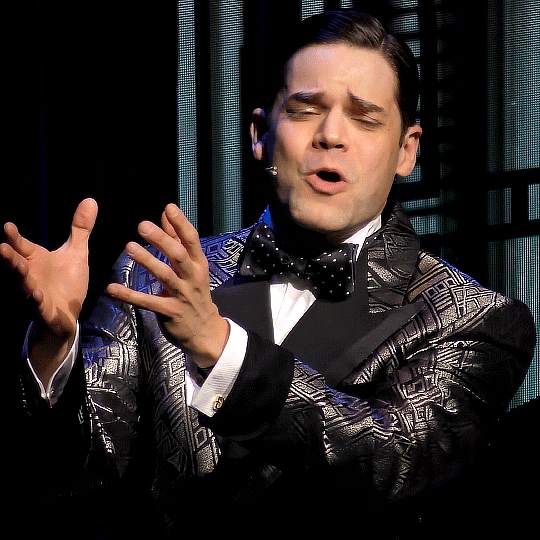
JEREMY JORDAN as JAY GATSBY | The Great Gatsby (2024)
#jeremy jordan#the great gatsby#daisy buchanan#broadwayedit#theatreedit#musicaltheatreedit#musicaledit#great gatsby#musicalgifs#my gifs#quite happy with this one#trying to decide if i should do a sam pauly one too#if you saw this before. no you didn't!!!#(i found out my stuff isnt showing up in tags so here it is again)#(lets try again!!!)
161 notes
·
View notes
Text
Guys, Nick Carraway is perhaps one of the most closeted gay men that I have ever encountered in any form of media.
#idk how to tag this#nick carraway#the great gatsby#jay gatsby#natsby#that one sketchy ass scene with mr.mckee#so lucky my english teacher is bisexual and I can yap about nick being LITERALLY gay--
79 notes
·
View notes